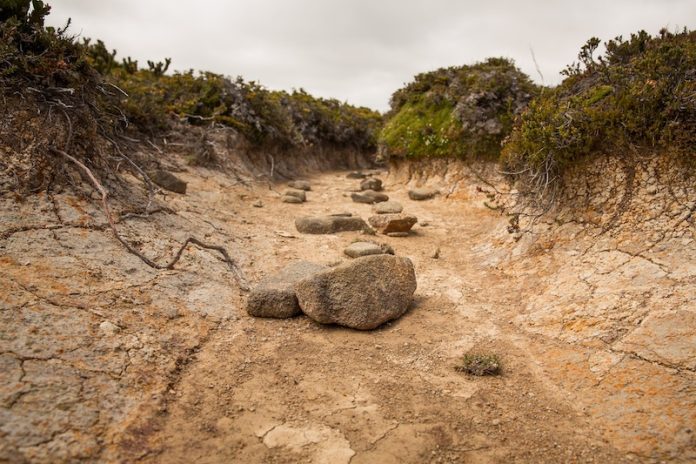
A recent study has found that over 40 trillion liters (10 trillion gallons) of water was lost from the Colorado River Basin between 2000 and 2021 due to climate change.
The quantity is equivalent to the entire storage capacity of Lake Mead.
If not for climate change, the basin’s drought in 2021 would likely not have necessitated the first-ever federally declared water shortage.
Surprising Sensitivity
“We were surprised to find how sensitive the basin is to warming compared to other major basins across the western U.S., and how high this sensitivity is in the relatively small area of the basin’s crucial snowpack regions,” says Benjamin Bass, a hydrological modeler at the University of California-Los Angeles.
This sensitivity to warming has resulted in significant water loss from the basin during the recent megadrought, raising concerns about climate change impacts.
The Basin and Its Importance
Covering approximately 647,500 square kilometers across seven U.S. states, the Colorado River Basin supplies water to about 40 million people, in addition to supporting agriculture and natural ecosystems.
The regional drought that started around 2000 is the driest period in 1,200 years and has sparked concerns about water scarcity as the climate continues to change.
The study incorporated runoff changes as a result of shifts in vegetation due to increased atmospheric carbon dioxide levels.
From 1880 to 2021, the Colorado River Basin’s temperature warmed by about 1.5 degrees Celsius due to anthropogenic climate change, leading to a 10.3% reduction in runoff.
The research also found that regions typically covered in snow in winter are losing water about twice as fast as normally snowless regions.
The change indicates that the Rocky Mountain West is transitioning to a more arid climate rather than simply experiencing periodic droughts.
The Implications
The study has serious implications for the 1922 Colorado River Compact, which governs the use of river water by the seven western U.S. states the Colorado flows through.
“If they were outlining the compact now, they would need to adjust that value due to the impact of warming,” Bass warns.
The study was published in Water Resources Research.
Follow us on Twitter for more articles about this topic.



